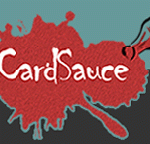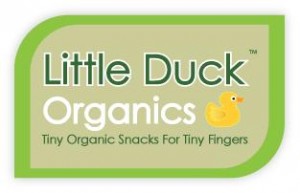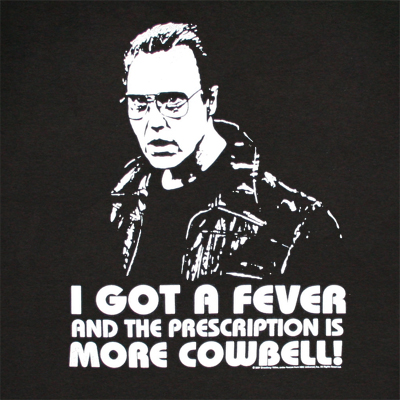Archive for the ‘Small Business Tips’ Category
Small Business Interview with CardSauce.com owner Kevin Hoyle
Monday, February 15th, 2010 It’s February 15th… How did you celebrate the weekend with your Special Valentine? Chances are high you sent or gave a card. So, how long did you stand there in the card aisle, climbing over other sentiment seekers, trying to find the perfect one? Our KikScore interview today is with a unique online card company that not only offers one of a kind designs and sentiments, but will also print and mail it for you! CardSauce has surely spiced up the greeting card industry and we are excited that owner Kevin Hoyle took the time to share his story.
It’s February 15th… How did you celebrate the weekend with your Special Valentine? Chances are high you sent or gave a card. So, how long did you stand there in the card aisle, climbing over other sentiment seekers, trying to find the perfect one? Our KikScore interview today is with a unique online card company that not only offers one of a kind designs and sentiments, but will also print and mail it for you! CardSauce has surely spiced up the greeting card industry and we are excited that owner Kevin Hoyle took the time to share his story.
1. Tell us about CardSauce.com and who you focus on serving?
CardSauce.com.comis a new online hub for quality, physical greeting cards and we’re here to spice-up the industry by offering a unique, user-driven experience! At CardSauce.com, we cater to…
– Buyers: When a customer places an order, we print the card(s) and mail it to the recipient(s) for them.
– Sellers: Artists (or graphic designer, photographer, etc) have the opportunity to upload original sauces (greeting cards) and sell them. Each time an artist’s design is purchased, he/she makes $1. It’s a true user-driven experience. While we do feature some original CardSauce.com designs, the cards featured are mainly “by the people, for the people”.
2. How did you get started selling online?
When the amount of times I found myself staring at unoriginal, unexciting cards at traditional stores and reseller outlets began to add up. I realized I was spending more time looking for an appealing card than I was on celebrating the actual event that the card was intended for. So I thought, why not move the future of greeting cards away from the mainstream corporations and place it into the hands of everyday people like you and me? Whether physical greeting cards are given to remind of an old memory shared, create a new memory, serve as inspiration, or spark a laugh, they all serve a common purpose: to relate or connect in some way to the recipient. So by allowing everyone and anyone the opportunity to create and sell original designs – not only does it generate creative cards for buyers to choose from – but it adds a level of authenticity to the industry as well. Sellers from various backgrounds, cultures, religions, etc can put a little piece of their life into their designs – building a portfolio of cards that offers something for everyone.
Why is CardSauce.com physically online, you may ask? Well, in addition to it being more cost-effective to start (I’m a “one-man-band” with limited funding), it adds convenience for buyers and sellers. Buyers can quickly browse the database of designs by category or key word, and can purchase and send cards from the comfort of their own home (plus let’s face it… gas money and stamps add up). Meanwhile, sellers can pursue a hobby they may not have otherwise had the opportunity to pursue – all while making a profit, or royalties, on each sale.
3. Where will CardSauce.com focus most of its energy in 2010?
In 2008 we focused our resources on web development and software. Once CardSauce.com went live to the public in 2009, we realized we were not yet where we wanted to be and continued our focus on site enhancements. Now that we feel comfortable with our offering from a web standpoint, we’ll focus our energy toward generating awareness and site traffic in 2010 – while continuing to enhance our core offerings.
4. If you had 2 lessons learned from your business that you could pass on to others about selling online, what are those?
My two lessons would be more about business start-up than CardSauce.com. First and foremost, technology – computers and the web in particular – is not as accommodating as people may assume. Sure, technology continues to advance at an incredibly fast rate and there are gadgets and software that exist today that people never assumed possible. But that doesn’t mean you can “do whatever you want” with a website (remember, I’m not the IT guy here).
When I was first scoping out my idea to potential web developers, I lost count of the amount of times I heard “that’s not doable”, “there’s no way to build that”, or “we can do that, but it’s going to be incredibly time-consuming and will cost you thousands of dollars”. I essentially had to change the blueprints of the website throughout the process and it was very educational. Things seemingly as simple as having PayPal split a single payment to two recipients is not doable, and that altered the entire make-up of the CardSauce.com checkout process. It’s really incredible – though sometimes it causes some road bumps.
The second lesson I learned is don’t rush it, no matter what “it” is! For example: Card Sauce, Inc. was incorporated in the fall of 2007 based on expectations set by my original web developer that the site would go live to the public within the next four months. The site didn’t go live to the public until the summer of 2009! That’s two years of paying federal and state taxes without any source of revenue… NOT cool!
Another example is when CardSauce.com.com finally did go live in June of 2009, it was not ready from a visual standpoint or a functional standpoint. I was forced to hire on a new web developer and start from the ground up behind the scenes, while the original site just kind of took up real-estate on the web. With first impressions being so powerful, it’s important to capitalize on potential customers (buyers and sellers) immediately and we were unable to do that. There’s no telling how much business we lost in those early months.
5. As 2010 begins, what do you see as 2 new trends in your business this year?
Growth and revenue. With ’08 and ’09 being all about web development and 2010 being all about generating awareness and site traffic, it’s difficult to imagine any other trend(s) taking over one of the top two spots.
6. If your business/store could be any movie or movie character, what movie/movie character would it be and why?
Great question; I think I’ll go with Finding Nemo. With industry powerhouses like Hallmark and American Greeting Corp. around, CardSauce.com is a classic “little fish trying to make it in a big pond” scenario – but in the end I think we’ll be able to pull it off.
7. If CardSauce.com could have a dream spokesperson for your company who would it be and why?
Not really sure; greeting cards aren’t exactly the type of product or gift that fall into the “seeking celebrity endorsements” category. I’d imagine we’d probably work the humor angle and find someone witty and original to exemplify the user-generated designs available for purchase.
8. How do the folks at CardSauce.com let loose after a busy day working?
Well, I’m currently operating a “one-man-band” that is only just beginning to focus on generating awareness and site traffic (revenue), remember? So, until CardSauce.com starts to pick up, it is my “after hours” gig. I currently work full-time during the day and spend many a late nights trying to perfect the sauce. When I’m not working, I enjoy letting loose in a variety of ways – whether it be dabbling in some physical activity (the gym, ice hockey, etc) or a frosty beverage with friends/family. Now that it’s ski/snowboard season here in Boston, I hope to be able to make a few treks north as well.
9. Do you have any parting thoughts for our readers and the small business community?
Only to support the CardSauce.com revolution and buy your quality, physical greeting cards online, of course!
So, get out the calendar, outline your greeting card list this year and surprise someone with a unique CardSauce.com design! And, share your spokesperson ideas with Kevin and CardSauce.




![images[2] images[2]](https://blog.kikscore.com/wp-content/uploads/2010/02/images2.jpg) You may have noticed a pattern here at KikScore where
You may have noticed a pattern here at KikScore where  What best defines ecommerce? The lack of boundaries in searching for the best goods/services at the best price. We here at KikScore came across
What best defines ecommerce? The lack of boundaries in searching for the best goods/services at the best price. We here at KikScore came across 
 It’s a busy week for
It’s a busy week for  By nature, I’m a contrarian. It could be that I just like to argue, but if the conventional wisdom is one way, I’m inclined to believe the opposite. Since “Blink” and “Tipping Point” became the reference points for almost everyone in the business world, I started to heavily discount any theory or research posited by Malcom Gladwell. The great thing about being a contrarian, you don’t even need to read the work or understand the position that you’re disagreeing with — you just take the opposite side. So, of course, I had a very good handle on Mr. Gladwell’s work without actually reading it. Unfortunately, my intentional ignorance didn’t last long. As a reader of the The New Yorker, I kept coming across articles that I really enjoyed. The problem: these articles were written by Malcom Gladwell. When does this guys sleep? He’s everywhere. I wouldn’t be surprised if shows up on Sesame Street, explaining supply side economics in a child-friendly way.
By nature, I’m a contrarian. It could be that I just like to argue, but if the conventional wisdom is one way, I’m inclined to believe the opposite. Since “Blink” and “Tipping Point” became the reference points for almost everyone in the business world, I started to heavily discount any theory or research posited by Malcom Gladwell. The great thing about being a contrarian, you don’t even need to read the work or understand the position that you’re disagreeing with — you just take the opposite side. So, of course, I had a very good handle on Mr. Gladwell’s work without actually reading it. Unfortunately, my intentional ignorance didn’t last long. As a reader of the The New Yorker, I kept coming across articles that I really enjoyed. The problem: these articles were written by Malcom Gladwell. When does this guys sleep? He’s everywhere. I wouldn’t be surprised if shows up on Sesame Street, explaining supply side economics in a child-friendly way.  Today’s KikScore interview is with Zak Normandin, owner of
Today’s KikScore interview is with Zak Normandin, owner of 